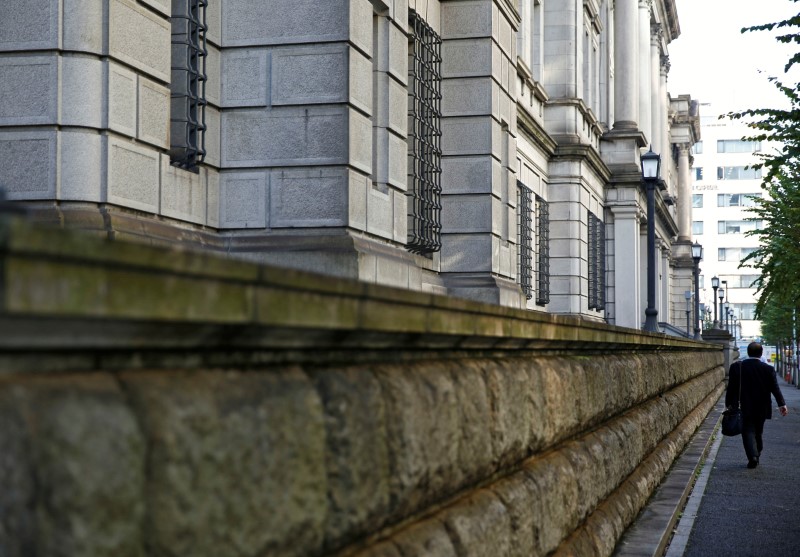Investing.com -- The Bank of Japan is likely to lift interest rates again in December, Nomura expected, even if inflation trends sideways as the once sleepy central bank appears eager to move further away from its accommodative stance.
"[W]e still see the December monetary policy meeting as the most likely date for the next interest rate increase," Nomura said. A December hike, which would mark the third July, could come even if inflation doesn't pick up pace as the BoJ's July summary of opinions signaled a shift among the central bank's policymakers.
The policymakers still view the monetary policy conditions even after the 0.25% hike in July, and despite expectations for core inflation to trend sideways at a rate of more or less 2% year over year, Nomura said.
"[T]his suggests to us a change in its policy response function such that it is likely to raise interest rates even if inflation trends sideways without rising," it added.
While the recent market volatility forced BoJ Deputy governor Shinichi Uchida in a speech on Aug. 7, to underline that rate hikes aren't on a pre-determined path and would depend on economic and inflation data, the deputy BoJ chief remarks doesn't "rule out the possibility that the BOJ could raise interest rates if stability returns to financial markets," Nomura added.
Others, however, aren't so sure that policymakers are eager to increase rates and would need to wait for further evidence of price pressures likely driven by wage hikes.
Looking at the summary of opinions from the July monetary policy meeting, there was "only one view" that could be categorized as hawkish, Barclays said in a Wednesday note. "Otherwise, there were some opinions biased against rate hikes, and even among the comments supporting them, cautious remarks stood out," it added.
The BoJ would likely need to wait until at least the December meeting to confirm "that the next wave of service price markups is reflected on the nationwide CPI data," Barclays said, though now expects the next BoJ rate hike in January rather than April on expectations that wage pressure will move the inflation needle.
The new year will deliver a clearer a outlook on the annually negotiated wage hikes, or “shunto," which will likely be reflected on macro wage data, Barclays added.
